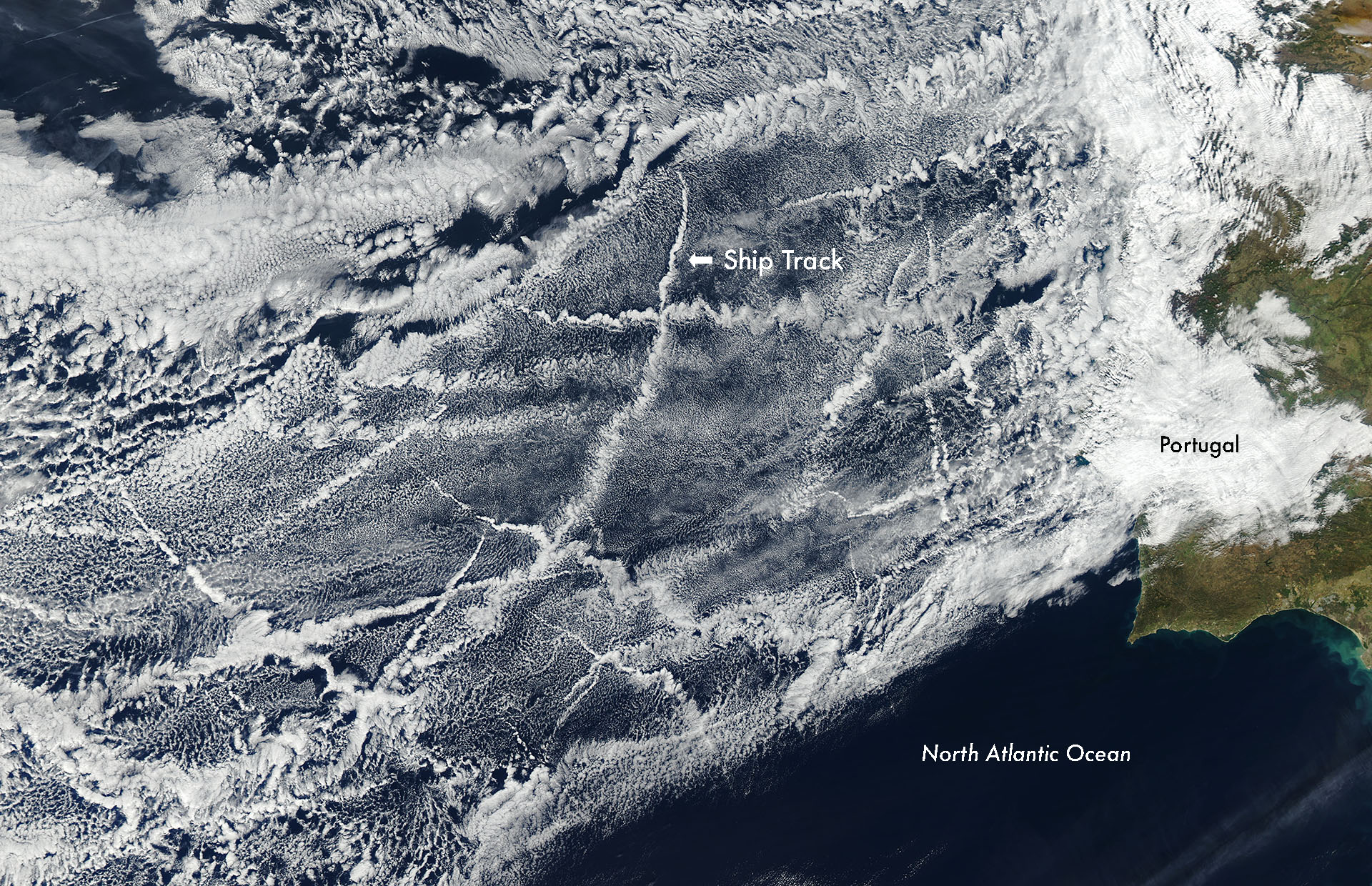The Atlantic Ocean is getting warmer due to various factors, including greenhouse gas emissions and changing weather patterns. Recently, researchers have discovered that a reduction in ship emissions has unintentionally contributed to this warming trend. Regulations implemented by the International Maritime Organization in 2020 have significantly reduced sulfur pollution from ships, which has improved air quality but also led to a decrease in the formation of certain types of clouds known as ship tracks. These ship tracks typically follow behind ships and help cool the planet by reflecting sunlight.
With fewer ship tracks, the Earth has warmed more rapidly. This effect is particularly pronounced in the Atlantic Ocean, where shipping activity is high. The increased light from reduced ship tracks adds to the warming effect of human-made carbon emissions, almost like the loss of cooling from a volcanic eruption each year. This situation serves as a unique opportunity for scientists to study the impact of a geoengineering scheme – even though it's unintentional – that is pushing the climate in the wrong direction.
Researchers are exploring different aspects of how pollution interacts with clouds. Sulfate or salt particles emitted by ships play a role in cloud formation and brightness. While these particles can make clouds more reflective and potentially cooler, their influence on clouds is complex and not fully understood. Some studies have shown that these particles can also suppress rainfall, impacting cloud size and reflectivity.
Scientists are using various methods, including satellite imagery and data analysis, to study the effects of pollution on clouds and how these changes contribute to global warming. Despite the challenges in understanding the intricate relationship between pollution and clouds, these studies highlight the potential impact of human activities on the Earth's climate system.
Via Science.org. Image by NASA.

Share your thoughts and join the technology debate!
Be the first to comment